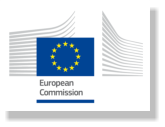










© DLR-TT-ECE 2014
European Project
IMPACT
Improved Lifetime of Automotive Application Fuel Cells with
ultra low Pt-loading





Background
Fuel cell (FC) power trains offer distinct emission
and efficiency advantages over internal combustion
engines (ICE).
Major automotive OEMs have committed
themselves to Fuel Cell vehicle development.
Power density, cost and durability of fuel cell
systems are still key challenges for market
introduction.
Project Objectives
The project addresses these challenges by
improving the Membrane-Electrode-Assembly
(MEA) as the core component of an automotive fuel
cell. The main goals are:
1.
Development of MEAs with ultra-low platinum
loading for automotive applications with single cell
performances achieving 1 W/cm² at 670 mV cell
voltage.
2.
Improvement of lifetime of ultra-low loaded
MEAs (goal 5,000 hours of dynamic operation in
stack and degradation rates below 10 μV/h).
At a Glance
Project Title: Improved Lifetime of Automotive
Application Fuel Cells with ultra low Pt-loading
Contract type:
Joint Technology Initiatives -
Collaborative Project (FCH)
Duration: November 2012 – April 2016
Scope: Fuel cells for automotive applications
Consortium: 12 partners from 6 countries
combining scientific methodology and industrial
know-how
Total cost: € 8 837 294,-
EU contribution: € 3 902 403,-
Project Coordinator:
Prof. Dr. K. A. Friedrich, DLR (DE)
Web Page: www.EU-project-IMPACT.eu
Key Words: Alternative Fuels, Fuel Cells,
Durability, Ultra-low Platinum Loading, MEA
development, Degradation Analysis, Testing,
Modelling







